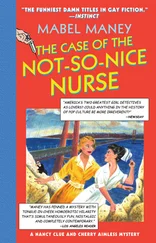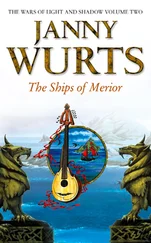Other fathers took their sons on fishing and camping trips, but Quoyle and his brother had blueberry expeditions. They whined with rage as the father disappeared into the bushes, leaving them in the sour heat holding plastic containers. One time the brother, face swollen with crying and insect bites, picked only fifteen or twenty berries. The father approached them, arms straining with the weight of two brimming pails. Then the brother began to cry, pointed at Quoyle. Said Quoyle had taken his berries. Liar. Quoyle had picked half a quart, the bottom of his pail decently covered. Got a whipping with a branch torn from a blueberry bush, with the first stroke berries raining. On the way home he stared into the berry pails watching green worms, stink bugs, ants, aphids, limping spiders come creeping up chimneys to the surface of the fruit where they beat the air and wondered. Backs of his thighs on fire.
The man spent hours in the garden. How many times, thought Quoyle, had his father leaned on his hoe and gazed down the rows of string beans, saying “Some sweet land we got here, boy.” He’d thought it was the immigrant’s patriotic sentiment, but now balanced it against the scoured childhood on a salt-washed rock. His father had been enchanted with deep soil. Should have been a farmer. Guessing at the dead man too late.
Billy Pretty might have heard him thinking.
“By rights,” he said, “my dad should have been a farmer. He was a Home boy on his way to Ontario to be hired out to a farmer.”
“Home boy?” It meant nothing to Quoyle.
“From a Home. Part orphanage, part a place where they put children if the parents couldn’t keep them, or if they were running wild on the streets. England and Scotland just swept them up by the thousand and shipped them over to Canada. My father was the son of a printer in London, but it was a big family and the father died when he was only eleven. It was because he was a printer’s son that he could read and write very well. His name was not Pretty then. He was born William Ankle. His mother had all the others, you see, so she put him in a Home. There used to be Homes all over the UK. Maybe there still are. The Barnardo Homes, the Sears Home, the National Children’s Homes, the Fegan Home, the Church of England Bureau, the Quarrier Homes and more and more. He was in the Sears Home. They showed him pictures of boys picking big red apples in a sunny orchard, said that was Canada, wouldn’t he like to go? He used to tell us how juicy those apples looked. Yes, he said.
“So, a few days later he was on this ship, the Aramania , on his way to Canada. This is in 1909. They gave him a little tin trunk with some clothes, a Bible, a brush and comb and a signed photograph of Reverend Sears. He told us about that trip many times. There were three hundred and fourteen children, boys and girls, on that ship, all of them signed on to help farmers. He said many of them were only three or four years old. They had no idea what was happening to them, where they were going. Just little waifs shipped abroad to a life of rural slavery. For you see, he kept in touch with some of the survivors he’d made friends with on the Aramania .”
“Survivors of what?”
“The shipwreck, my boy, and how he came here. We spoke of the names of rocks on the way out, you’ll remember, but there’s other things in the sea that’s a mortal danger, and they can never have names because they shift and prowl and vanish.” He pointed at the icebergs on the horizon. “Remember, in 1909 they didn’t have ice patrols and radar and weather faxes. You took your chance in iceberg alley. And my father’s ship, like the Titanic only three years later, ran onto an iceberg in the bitter June twilight. Right out there, right off Gaze Island. There’s no chart for icebergs. Of those three hundred and fourteen children only twenty-four were saved. Official count was twenty-three. And they were saved because young Joe Sop-that was later Skipper Joe, master of one of the last Banks fishing schooners-come up to the Gaze to get the cow and saw the lights and heard the children screeching and crying as they went into the icy water.
“He run down to the houses bawling out there was a shipwreck. Every boat in the place put out, there was two widow women pulled oars and saved three children, and they got what they could, but it was too late for most. You only last a little in that water. Freezes the blood in your veins, you go numb and die in the time it would take us to walk back to the old house.
“Weeks later another shipload of Home children on the way to Canada anchored offshore and sent in a small boat to take the survivors, to send them on to their original destination. But my father didn’t want to go. He’d found a home here with the Prettys and they hid him, told the officials there was a mistake in the count of the saved-only twenty-three. Poor William Ankle was lost. And so my father changed his name to William Pretty and here he grew up and led an independent life. And if it was not happy, he didn’t know it.
“If he’d gone on with the others he’d likely have gone into a miserable life. You ask me, Canada was built on the slave labor of those poor Home children, worked to the bone, treated like dirt, half starved and crazed with lonesomeness. See, my father kept in touch with three of the boys that lived, and they wrote back and forth. I’ve still got some of those letters-poor wretched boys whose families had cast them off, who survived a shipwreck and the freezing sea, and went on, friendless and alone, to a harsh life.”
Quoyle’s eyes moist, imagining his little daughters, orphaned, traveling across the cold continent to a savage farmer.
“Now, mind you, it was never easy at the Prettys’, never easy on Gaze Island, but they had the cows and a bit of hay, and the berries, the fish and their potato patches, and they’d get their flour and bacon in the fall from the merchant over at Killick-Claw, and if it was hard times, they shared, they helped their neighbor. No, they didn’t have any money, the sea was dangerous and men were lost, but it was a satisfying life in a way people today do not understand. There was a joinery of lives all worked together, smooth in places, or lumpy, but joined. The work and the living you did was the same things, not separated out like today.
“Father’d get those pathetic letters, sometimes six months after they was written, and he’d read them out loud here and the tears would stream down people’s faces. Oh, how they wanted to get their hands on those hard Ontario farmers. There was never a one from Gaze Island that voted for confederation with Canada! My father would of wore a black armband on Confederation Day. If he’d lived that long.
“One of those boys, Lewis Thom, never had a bed of his own, had to sleep in the musty hay, had no shoes or boots and wrapped his feet in rags. They fed him potato peels and crusts, what they’d give to the pig. They beat him every day until he was the color of a dark rainbow, yellow and red and green and blue and black. He worked from lantern light to lantern light while the farmer’s children went to school and socials. His hair grew down his back, all matted with clits and tangles. He tried to trim it with a hand-sickle. You can guess how that looked. He was lousy and dirty. The worst was the way they made fun of him, scorned him because he was a Home boy, jeered and made his life hell. In the end they cheated him of his little wage and finally turned him adrift in the Ontario winter when he was thirteen. He went on to another farmer who was worse, if can be. Never, never once in the years he worked on the farms-and he slaved at it because he didn’t know anything else until he was killed in an accident when he was barely twenty-never once did anyone say a kind word to him since he got off the ship in Montreal. He wrote to my father that only his letters kept him from taking his life. He had to steal the paper he wrote on. He planned to come out to Newfoundland but he died before he could.
Читать дальше











